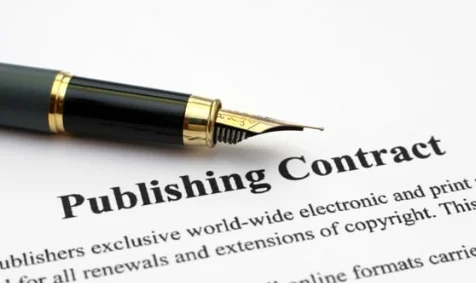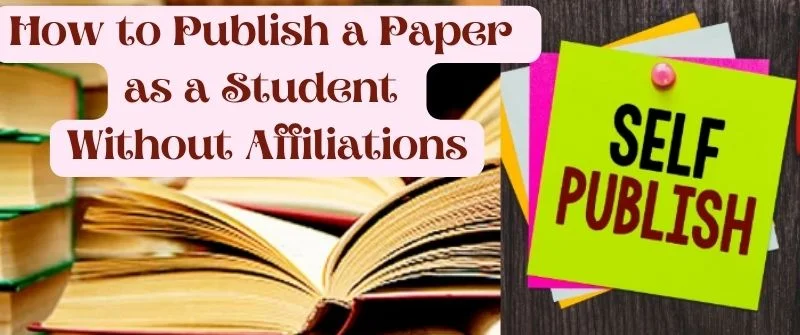Academically, publishing a paper is an important step for higher education students to take. There is no universal approach to publishing a paper. However, some of the things that you have to do include choosing the right journal, understanding what peer-reviewed articles are, knowing how to respond to reviews, and understanding how to navigate through the production process.
Affiliation of an author in writing is the place where the author conducted the research they have written about or reported. Due to the mobility of academicians today, the place does not necessarily have to be where they are when submitting the research paper.
Affiliation is mainly done for authenticity. It helps eliminate doubt about the research by making sure that it is not incongruous.
Also, in most cases affiliation is mainly for prestige. Research institutions are not viewed as equal. Some are better than others with more luminaries on their staff and enviable collections of records.
Therefore, affiliation from these institutions is held in higher regard compared to those from lesser-known institutions.
Can I Publish a Paper without Affiliation?

Yes, you can publish a paper without affiliation. The institution name or the place you conducted the research is not entirely necessary.
When your paper is reviewed only academic standards will be applied which have nothing to do with the affiliation.
Also, affiliations offer contact information of the writer in case anyone wants to inquire about their availability which is not a must.
There is no mandatory requirement that a paper must have affiliation before it is published. However, it is not entirely useless or unworthy to have affiliation in your research paper.
Without affiliation, writers must make sure that their approach is sound and in line with the ethics of conducting research that different institutions provide.
Importance of Publishing Papers
There are several reasons why writers seek to peer review their articles and publish them. these include:
1. To Earn Money
When papers are peer-reviewed and published, they definitely will help attract employers in the research industry and academia. The more one publishes, the more their performance levels increase which leads to more money.

Publishing more on a particular field increasingly makes you an expert in that field. Therefore, opportunities to pass your knowledge to juniors in your area of study is another way that earns cash
2. To Acquire Scholarships
There are many scholarships for different courses in higher learning institutions. When applying for them published paper can play a huge role in getting one.
For example, if your research paper is published in a peer-reviewed journal, the scholarship approval team will mostly prefer your application.
At least two or three published papers can help show your passion and hard work toward a particular field of study.
3. Improve Communication and Skill Network
When preparing a paper that is to be published, the writer must read many authors and the majority of their articles to an extent of calling or emailing them for extra advice. As a result, the writer can develop communication and academic skills.
Through this, the writer has a very good chance of creating a network with scholars and intellectuals across the world. These networking and analytical skills are very beneficial and globally sought after.
4. To Develop Independent and Critical Thinking
To show that you exhibit independent and critical thinking, publishing papers is something that you can provide proof with. Published research papers help writers show that they have an excellent power of endurance because they take a lot of time to prepare.
Also, this investment of longer time periods requires independent and critical thinking. The content in the published paper has to be your own with no evidence of plagiarism or repetition.
Also, they have to be put together in a spectacular way that will convince the readers that the points you are trying to put across are valid.
5. Develop Determination
Writing a paper and publishing it shows a lot of determination to achieve something because you have to access many sources of information before coming up with a good one.
The process is not easy because the writer has to revise and resubmit work severally for it to get published. This requires determination because the process takes time.
The writer also gets through the awful feelings of brokenness and frustration hoping that the paper will get published.
How to Publish a Paper Without Affiliation?
To publish a paper without affiliation, you will need to write it in an approach that is sound and scientific. This is mainly because you do not have the authenticity and prestige that comes with including affiliation in your research work.

Also, the research will have to incorporate all the ethics required because there is no affiliation to prove that it was conducted by a known or approved institution.
Also, to publish a paper without affiliation, you will need to be an independent consultant with an incredible CV to justify it.
Not everybody can write a paper without affiliation and publish it. There must be qualifications that at least show that you have some expertise and allowance to conduct credible research.
After writing the paper you will need to do the following:
Search for Suitable Journals
Here you will need to take a lot of time conducting extensive research on the scope of journals. The main reason for doing this is to identify the journals that are most suitable for your paper.
The selected journal should incorporate the category and scope that your research falls in. Also, remember that not all that shines is gold because there are journals and publishers out there that are aiming to exploit your work.
Making sure that you have submitted your work to the right journal helps avoid wasting your time and the editor’s time.
Submission to Journal, Editorial, or Peer Reviewers
When you submit your work to editors, they can choose to forward it to peer reviewers or scholars of your field for further examination.

If your manuscript is not a good fit for the journal you will receive a transfer invitation to a journal that is suitable or face rejection. After peer-reviewing has been concluded your paper can be rejected, accepted, or returned for you to revise it.
When it is accepted all, you will be required to do is sign a publishing agreement after which the paper will get published.
Pros and Cons of Publishing Independently
Pros
Fast Exposure
When self-publishing you learn everything about the field by yourself. Therefore, you get to know everything about publishing instead of depending on people and companies to do it for you.
Proper Creative Control
When publishing your work, you craft and control your content every step of the way. You publish your material on your own terms meaning you can choose the art and format you prefer.
Better Royalties
In traditional publishing, the writer shares the profits with the publisher. When you publish independently you get a huge share of the profits and slightly pay for the platform you will use to publish such as amazon.
Cons
Less Marketing
When you publish on your own you have to market the paper or book on your own.
This can be extremely hard because you may not be able to navigate through the market compared to publishers who have had experience and can make your book known within a short period of time.
Lack of Editorial Support
When you publish independently you miss out on editors who can approve whether your work is excellent or not.
These editors can also tell whether your paper will do well in the market by comparing your work to other similar publications in the market.

